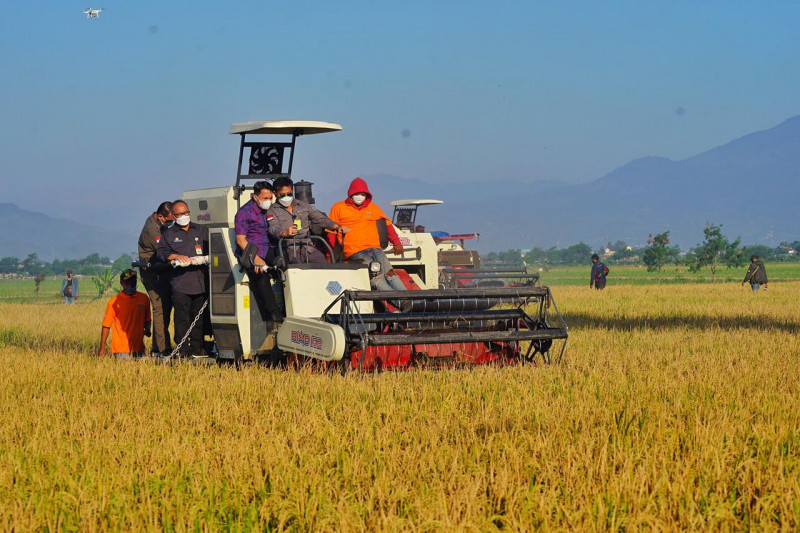Indonesia's agricultural sector has long faced challenges, ranging from outdated farming techniques to limited access to markets. As the global economy evolves, there is an urgent need for modernization in farming practices, especially in countries with a strong agricultural base like Indonesia. One of the key strategies to drive this change is contract farming, a model that aligns the interests of farmers, agribusinesses, and the government to create a more structured and profitable agricultural sector.
In December 2024, the Politeknik Pembangunan Pertanian (Polbangtan) Bogor organized the Millennial Agriculture Forum (MAF), which focused on the theme of "Contract Farming, Unit Bisnis Pertanian Modern" (Contract Farming, A Business Unit for Modern Agriculture). This webinar highlighted the importance of contract farming as a tool for enhancing agricultural productivity and improving the welfare of farmers. The event brought together various stakeholders, including agricultural cooperatives, agribusiness players, and modern farming advocates, to discuss the benefits and challenges of this model.
The Importance of Contract Farming in Modern Agriculture
Contract farming refers to an agreement between farmers and buyers, typically agribusiness companies, to grow specific crops or produce goods according to predetermined terms. This collaboration offers several advantages, such as guaranteed markets for farmers' produce, access to better farming inputs, and shared risks between producers and buyers.
Menteri Pertanian Andi Amran Sulaiman, speaking at the event, emphasized the critical role of collaboration among farmers, cooperatives, agricultural extension workers, and agribusinesses. "To implement modern agriculture, the partnership between all stakeholders must be strong and well-coordinated," he stated. He further stressed that contract farming offers farmers stability by providing a consistent market for their products.
Enhancing Farmers' Welfare through Modern Agribusiness
According to Idha Widi Arsanti, the Head of BPPSDMP (Badan Penyuluhan dan Pengembangan Sumber Daya Manusia Pertanian), MAF serves as a strategic initiative to modernize agriculture and foster the regeneration of farmers. She noted that the forum provides young people with the opportunity to learn about the importance of agribusiness, a sector crucial for creating a productive, competitive, and sustainable agricultural industry.
The agricultural sector’s challenges often lie in market access. As Yoyon Haryanto, Director of Polbangtan Bogor, pointed out, access to markets is one of the primary obstacles for many farmers. Contract farming offers a direct solution by providing a consistent and pre-arranged buyer, allowing farmers to plan their production with confidence.
The Role of Technology and Agribusiness
In the digital age, the integration of Agriculture 4.0 technologies is becoming increasingly important. Soekam Parwadi, Director of Agribusiness Development at Paskomnas Indonesia, explained that agribusiness must shift towards a more market-driven model. The success of modern agriculture relies on corporate-based systems that leverage technology for efficiency and scalability.
The event also featured insights from Nuralisa Ratna Dewi, an alumni of Polbangtan Bogor, who shared her success in consolidating land and improving access to agricultural machinery. She emphasized that collaboration among farmers, cooperatives, and suppliers of farming machinery is key to improving operational efficiency and increasing farmer incomes.
Conclusion: The Future of Indonesian Agriculture
Contract farming presents a practical, scalable solution to the challenges faced by Indonesian agriculture. By aligning the interests of farmers with those of agribusinesses and the government, this model can provide farmers with consistent income, improve market access, and contribute to the overall modernization of the agricultural sector. Moreover, with the support of Agriculture 4.0 technologies and strategic partnerships, the Indonesian agricultural sector is poised for a more sustainable and competitive future.
Read More






 Wednesday, 04-02-26
Wednesday, 04-02-26







